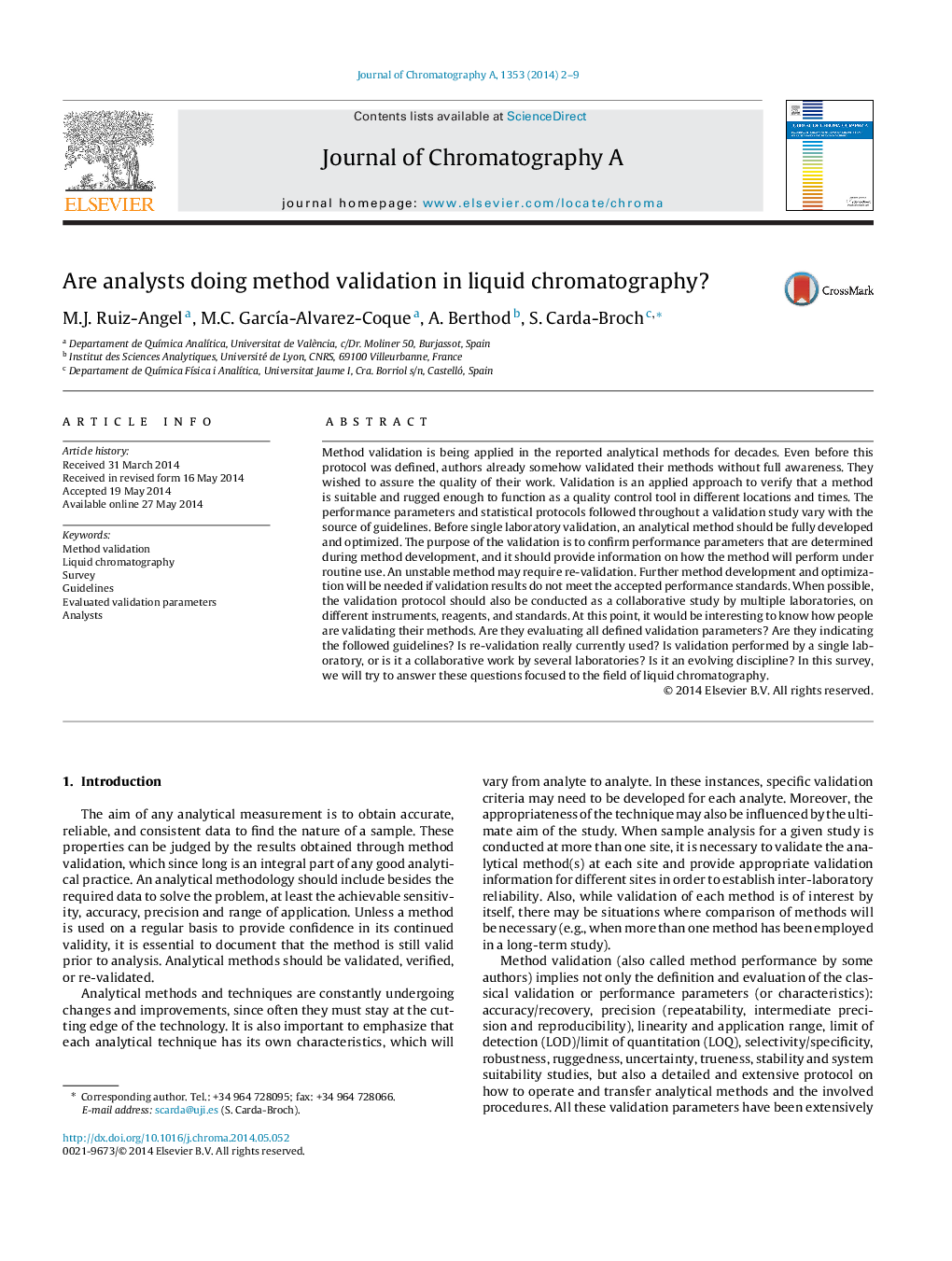| Article ID | Journal | Published Year | Pages | File Type |
|---|---|---|---|---|
| 1200073 | Journal of Chromatography A | 2014 | 8 Pages |
•Survey on how well analysts are doing method validation in the field of liquid chromatography in recent years.•The characteristics of method validation are detailed.•The frequency in which the validation parameters are evaluated in the reports is given according to Scopus database.•Regulatory agencies and journals that most frequently publish method validation reports are indicated.•What is really evolving is the degree of exigency of analysts in the validation process.
Method validation is being applied in the reported analytical methods for decades. Even before this protocol was defined, authors already somehow validated their methods without full awareness. They wished to assure the quality of their work. Validation is an applied approach to verify that a method is suitable and rugged enough to function as a quality control tool in different locations and times. The performance parameters and statistical protocols followed throughout a validation study vary with the source of guidelines. Before single laboratory validation, an analytical method should be fully developed and optimized. The purpose of the validation is to confirm performance parameters that are determined during method development, and it should provide information on how the method will perform under routine use. An unstable method may require re-validation. Further method development and optimization will be needed if validation results do not meet the accepted performance standards. When possible, the validation protocol should also be conducted as a collaborative study by multiple laboratories, on different instruments, reagents, and standards. At this point, it would be interesting to know how people are validating their methods. Are they evaluating all defined validation parameters? Are they indicating the followed guidelines? Is re-validation really currently used? Is validation performed by a single laboratory, or is it a collaborative work by several laboratories? Is it an evolving discipline? In this survey, we will try to answer these questions focused to the field of liquid chromatography.
